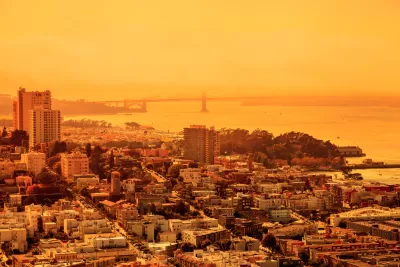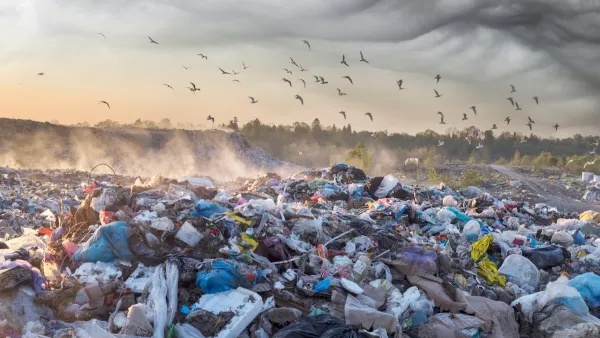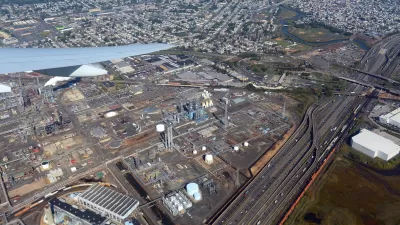Thanks to longer fire seasons and increasingly intense blazes, Western states are experiencing the nation’s worst air quality.

Kylie Mohr describes the findings of a report from the American Lung Association that assesses air quality around the United States. “Its “State of the Air” analysis looks at two of the six outdoor air pollutants regulated by the Clean Air Act, including both short-term spikes and annual levels of particle pollution, and ground-level ozone air pollution, often known as smog.”
According to the report, “More days with ‘very unhealthy’ and ‘hazardous’ air quality were documented than ever before recorded in the report’s 20-year existence.”
Altogether, almost 9 million more people were exposed to unhealthy levels of particulate pollution compared to previous reports, in large part due to breathing in wildfire smoke.
Mohr explains, “Emissions from transportation and power plants have fallen drastically since the implementation of the 1970 Clean Air Act, a comprehensive federal law that regulates sources of emissions. But in recent years, climate change-fueled increases in pollution are increasing public health challenges.” Consequently, “The urban, industrialized Eastern and Midwestern states are now getting passing grades compared to 15 years ago, while Western states now dominate the charts.”
Air pollution doesn’t affect everyone in the same way. “The report also reiterates the fact that socioeconomic inequalities exacerbate environmental harms. People of color were 61% more likely than white people to live in a county failing in at least one pollutant category, and over three times as likely to live in a county with a failing grade for all three kinds of pollution.”
To improve these conditions, “The American Lung Association would like to see the EPA strengthen its air-quality standards for particulate matter and ozone as a first step.” The article acknowledges that “While that won’t begin to eliminate the particulate matter coming from the West’s increasingly severe wildfires, or wholly mitigate the climate’s impact on ozone pollution, actions from the individual to federal level could help move the needle toward a vision of clear valleys, cityscapes and sunsets.”
FULL STORY: Air quality report card flunks the West

Maui's Vacation Rental Debate Turns Ugly
Verbal attacks, misinformation campaigns and fistfights plague a high-stakes debate to convert thousands of vacation rentals into long-term housing.

Planetizen Federal Action Tracker
A weekly monitor of how Trump’s orders and actions are impacting planners and planning in America.

Chicago’s Ghost Rails
Just beneath the surface of the modern city lie the remnants of its expansive early 20th-century streetcar system.

Bend, Oregon Zoning Reforms Prioritize Small-Scale Housing
The city altered its zoning code to allow multi-family housing and eliminated parking mandates citywide.

Amtrak Cutting Jobs, Funding to High-Speed Rail
The agency plans to cut 10 percent of its workforce and has confirmed it will not fund new high-speed rail projects.

LA Denies Basic Services to Unhoused Residents
The city has repeatedly failed to respond to requests for trash pickup at encampment sites, and eliminated a program that provided mobile showers and toilets.
Urban Design for Planners 1: Software Tools
This six-course series explores essential urban design concepts using open source software and equips planners with the tools they need to participate fully in the urban design process.
Planning for Universal Design
Learn the tools for implementing Universal Design in planning regulations.
planning NEXT
Appalachian Highlands Housing Partners
Mpact (founded as Rail~Volution)
City of Camden Redevelopment Agency
City of Astoria
City of Portland
City of Laramie





























